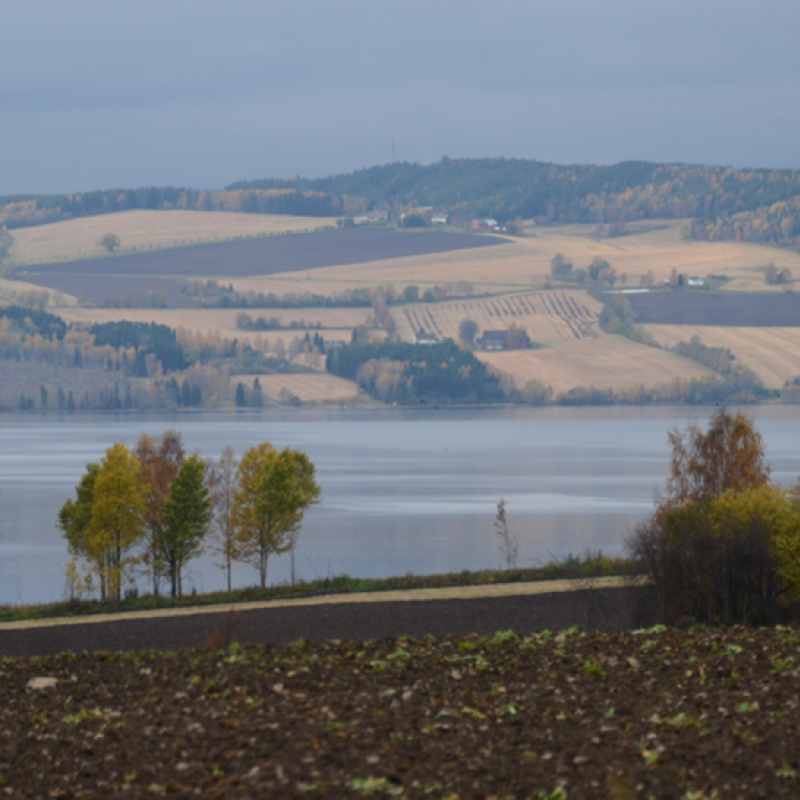Habtamu Alem
Forsker
(+47) 993 67 513
habtamu.alem@nibio.no
Sted
Ås - Bygg O43
Besøksadresse
Oluf Thesens vei 43, 1433 Ås (Varelevering: Elizabeth Stephansens vei 21)
Vedlegg
CVBiografi
Alem har doktorgrad og MSc. i økonomi fra Norges miljø- og biovitenskapelige universitet (NMBU) ved Handelshøyskolen. Han er forsker ved Norsk Institutt for bioøkonomi (NIBIO), avdeling for økonomi og samfunn. Alem har god kunnskap om miljø og ressursøkonomi som er basen for sirkulærøkonomi og virkemiddelvurderinger. Han koordinerer for tiden det EU-baserte samarbeidsprosjektet SYSTEMIC. I dette prosjektet er en av hovedoppgavene å gjennomføre sirkulære økonomier i 8 EU-land (Belgia, Frankrike, Tyskland, Italia, Latvia, Norge, Portugal og Spania). Alem spiller en nøkkelrolle for OECD-nettverk for økonomisk analyse.
Hans forskningsinteresse er mat og ernæringssikkerhet; Miljø- og produksjonsøkonomi; Klima forandringer; Økonometri; konsekvensutredning; sirkulær økonomi; kostnads-nytte-analyse; forbruker økonomi; Risikoanalyse; og topis relatert til utviklingsøkonomi (utviklingsland og utviklede land).
Forfattere
Habtamu AlemSammendrag
Det er ikke registrert sammendrag
Sammendrag
The literature shows that organic farming has become the centre of policies aiming to achieve sustainable agriculture due to its environmental benefits, such as increased biodiversity, reduced greenhouse emissions, etc. However, there is a gap in the literature on the productivity effects of organic farming over and above the conventional method to understand whether widely converting conventional farms pays off. The current study estimated the productivity function using a semi-parametric smooth-coefficient (SPSC) approach based on unbalanced panel data set from Norwegian dairy and crop farms during 1991 to 2020. The results show that organic farming, compared to conventional farming, increase productivity for most of the dairy farms, while for crop farms the effect is mixed. This finding suggests that organic farming for many farms can yield a productivity higher than or equal to conventional farming. However, the results depend on the farm under consideration, and there exists a large degree of heterogeneity among the farms. Likewise, the technical change is heterogeneous, indicating that some farms underwent technical progress (regress) or a neutral change during the study period. Finally, the returns to scale (RTS) are at the mean about 0.89 and 1.05 for dairy and crop farms, respectively, implying that these farms operate at a decreasing (increasing) returns to scale and can improve their productivity by decreasing (increasing) the current scale of operation.
Sammendrag
Det er ikke registrert sammendrag
Forfattere
Hilde Margrethe Helgesen Grete H. M. Jørgensen Bjørn Egil Flø Habtamu Alem Divina Gracia P. Rodriguez Ellen Elverland Ragnhild BorchseniusSammendrag
I en tid der mange melkebønder sliter tungt og jobber mye på bekostning av familie og helse, blir spørsmålet om det er mulig å drive bærekraftig melkeproduksjon stadig mer aktuelt.

Divisjon for matproduksjon og samfunn
FoodsecURe: Food security through better sanitation: the case of urine recycling
Human urine contains essential plant nutrients. Hence, urine can serve as a “free” and locally available fertiliser. Successful, low-cost urine-diverting toilets (UDTs) that separately collect urine have been developed in Scandinavia and Europe and manufactured at large scale in Africa. A solution for stabilising urine into a solid fertiliser has also been developed. But why can't we recycle urine at scale? In Sweden UDTs are used in some cottages, and the Swedish University of Agricultural Science (SLU) has developed a method to stabilise and dry urine into a fertiliser product, urine-based fertiliser (UBF). FoodSecure aims to implement this technology at a medium scale in Ethiopia.

Divisjon for matproduksjon og samfunn
Agricultural mitigation measures and the value of water quality improvements
Agriculture is one of the main sources of water pollution in Norway, and an important contributor to GHG emissions.

Divisjon for matproduksjon og samfunn
Tiltak i landbruket og verdien av forbedret vannkvalitet
Landbruket er en av de viktigste kildene til vannforurensing i Norge, og samtidig en stor bidragsyter til klimautslipp.
